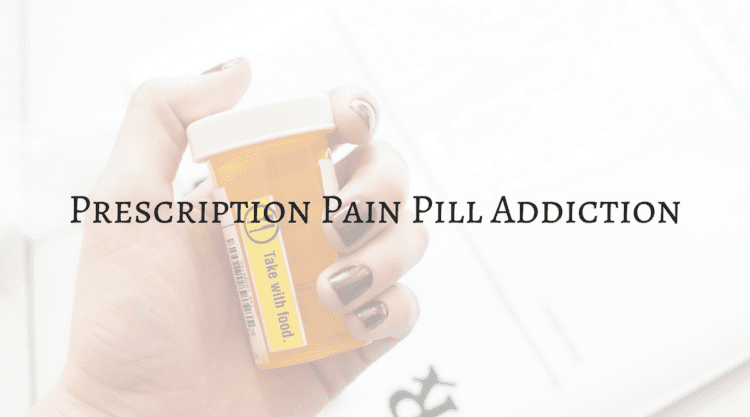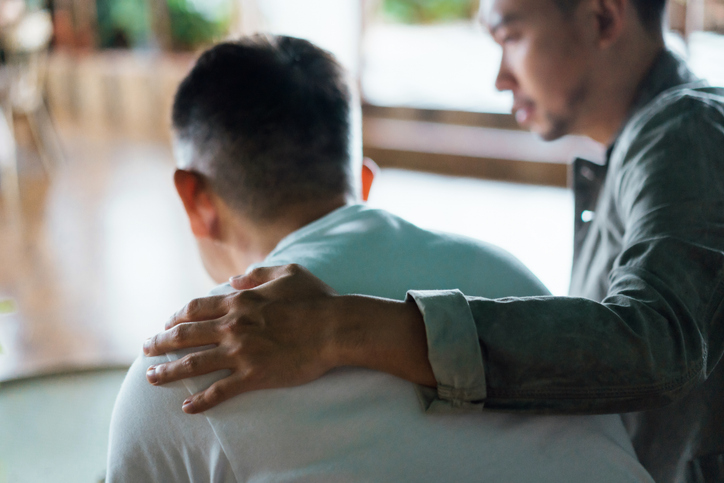Prescription Pain Pill Addiction Rates Rising
Every day, ordinary people gratefully accept prescribed painkillers following surgery or a serious accident. People with chronic back problems or other ongoing issues have little choice but to stay on painkillers. The alternative is to suffer through every day in agony.
Codeine, oxycodone, hydrocodone, fentanyl and other opioids can be godsends for temporary pain management or in carefully monitored long-term treatment plans. However, the risk of getting hooked on them is high.
How Prescription Pain Med Addiction Occurs
Painkillers are designed to attach to natural opioid receptors in the brain, spinal cord and digestive tract. Once in place, they decrease the perception of pain and target pleasure and reward circuits to stimulate the release of dopamine. Dopamine is a natural feel-good chemical that regulates emotion, awareness, motivation and pleasure. You have dopamine to thank when you enjoy your dinner or learn an important life skill.
The brain is always trying to teach us what’s good for us. It releases dopamine so that we’ll want to repeat life-sustaining activities. Eating, learning, exercising and having sex are good examples. The human race would have ceased to exist early on if our brains hadn’t rewarded us when we did those things.
Over time, though, as tolerance to them builds, opioids encourage ever-rising levels of dopamine. The result is a sense of calmness, well-being and euphoria.
Effects of Prescription Pain Pills
First, the drugs have taken over your brain’s job. They’re now calling the shots and telling you which activities you should repeat. Simply put, painkillers teach you to need them for pain relief, even crave them and then ultimately require taking them.
Second, your brain becomes alarmed by the flood of dopamine coursing through your system. To compensate, it shuts down its own dopamine production. As a result, it’s impossible to experience pleasure at all unless you’re taking painkillers.
Alcohol enhances the effect. People who casually add leftover painkillers to their drinking routines are the first to wind up addicted. Moreover, the combination is often deadly.
The Opioid Epidemic: A Result of Prescription Pain Pills?
Prescription pain pill addiction has become epidemic in the U.S. According to the Centers for Disease Control and Prevention, fatal overdoses of prescribed painkillers quadrupled from 1999 to 2015.
Heroin is a close cousin, and its resurgence has had devastating consequences. When doctors rightly refuse to refill opioid prescriptions, patients hit the streets to find a substitute. Upstanding citizens with stable families and good jobs can become felons, needle-users or victims of violent crime overnight.
The potential for abuse of painkillers lies in their wide accessibility. They’re in purses, glove boxes and home medicine cabinets all over America. They’re stolen by dinner guests, plumbers and teenagers looking to get high. Housewives hit their friends up for pills. People who never dreamed they’d be addicts doctor-hop to get one more cycle. Patients and clinic employees steal prescription pads.
In most cases, people who abuse opioids have no idea that they’re doing anything wrong. After all, these are legal substances. If a trusted medical professional prescribed them, they must be safe.
They are largely safe for people who have no history of mental illness or drug abuse. They’re safe when prescribed at low doses for only the number of days that pain is likely to be a problem. They’re safe under a qualified doctor’s strict supervision.
As for their being legal, most abusers don’t know that they’re committing prescription fraud. That’s a felony in most states.
Prescribed painkillers are only legal if your name is on the bottle. They’re only legal if you’re taking the correct dose. They’re only legal if you don’t offer them to a friend who’s having trouble sleeping. They’re only legal if you don’t sell them. They’re only legal if you’ve been truthful with your doctor about your medical history and your pain level.
Rehab for Prescription Pain Pill Addiction
At St. Gregory Recovery Center, our experienced caregivers know everything there is to know about prescription pain pill addiction. We know how easily it can happen. This is a safe place where you can freely share your struggles without fear of judgment. We’ll take your circumstances into account and treat you just as we would one of our own loved ones.
Our comprehensive program includes proven therapies, holistic methods, faith-based treatment and innovative new approaches. Family counseling and group meetings will help you build a network of support. We’re committed long term to helping you heal so that you can discover God’s exciting purpose for your life.
Call St. Gregory Recovery Center today, and start your journey to recovery.











